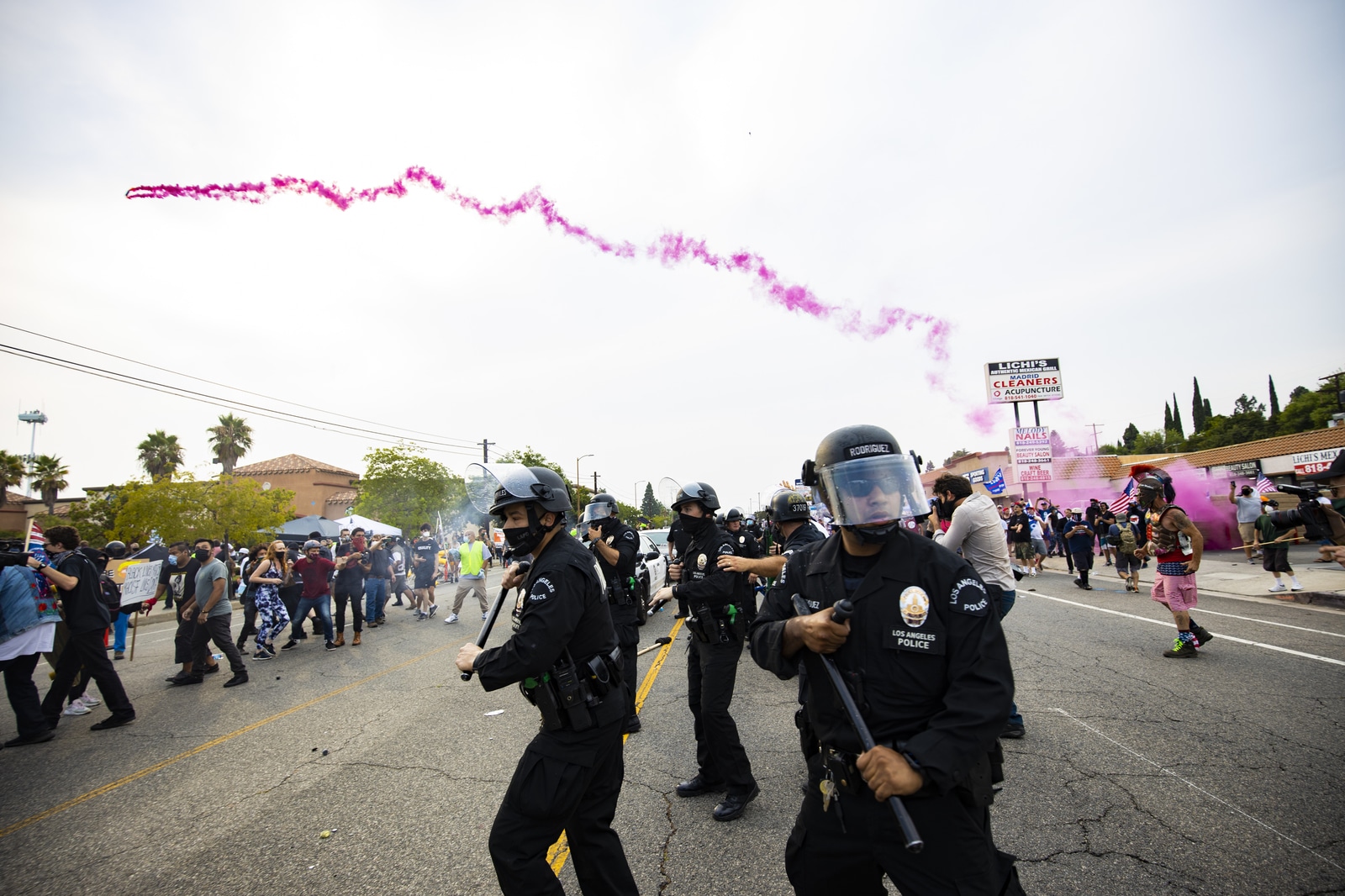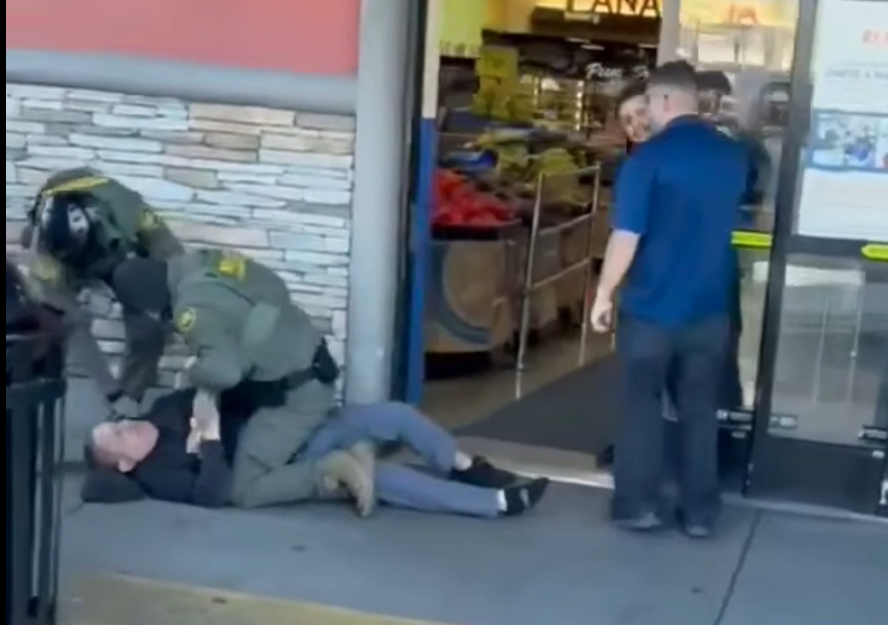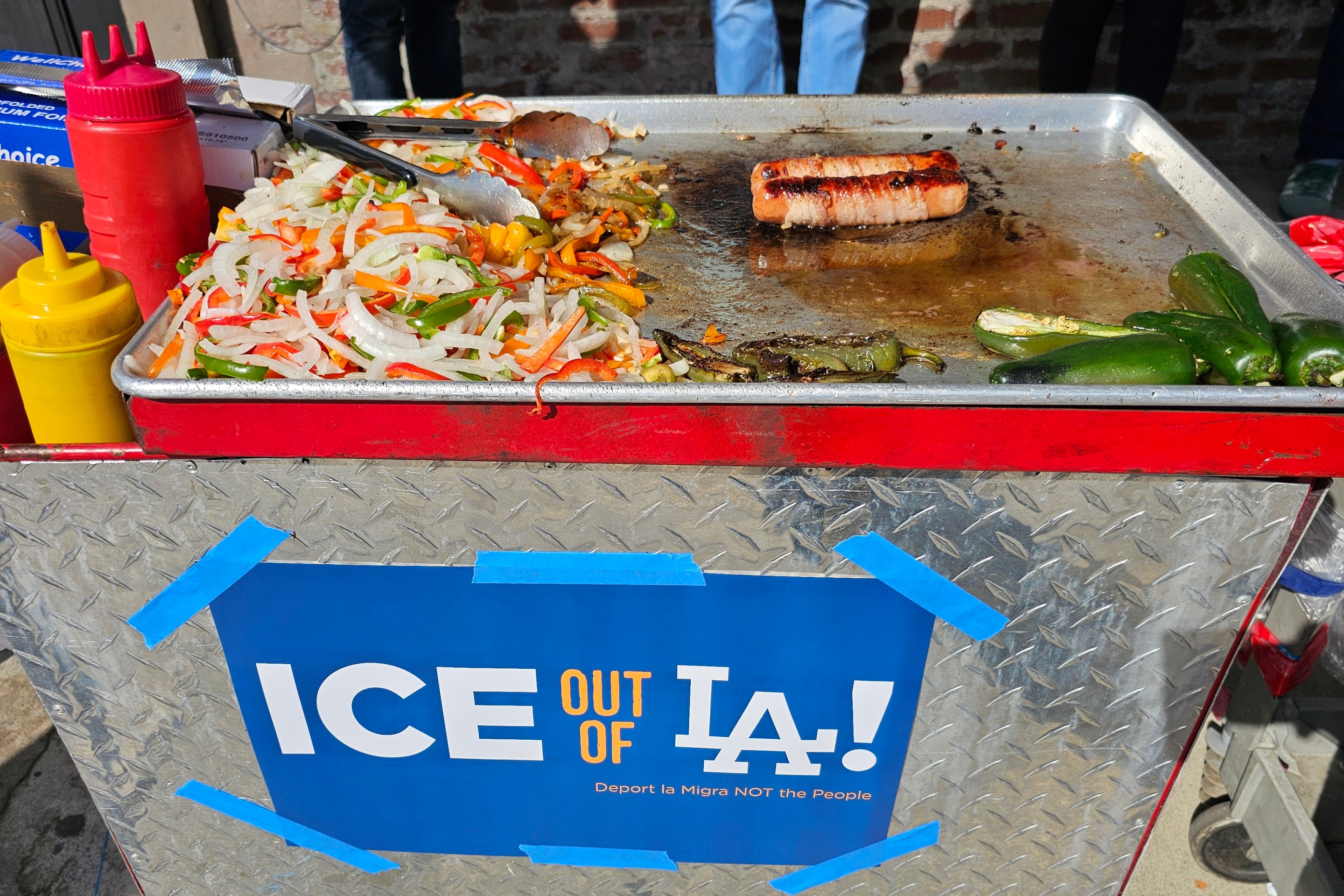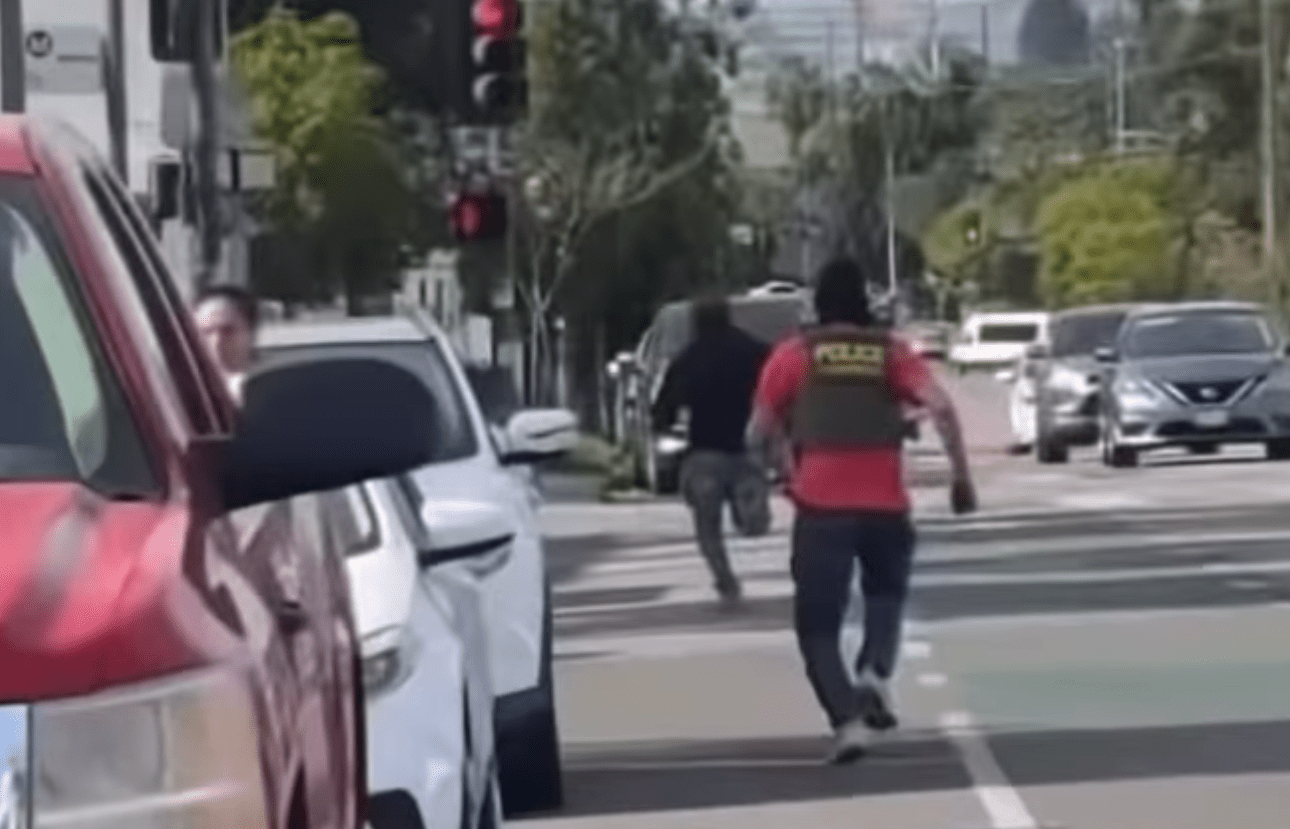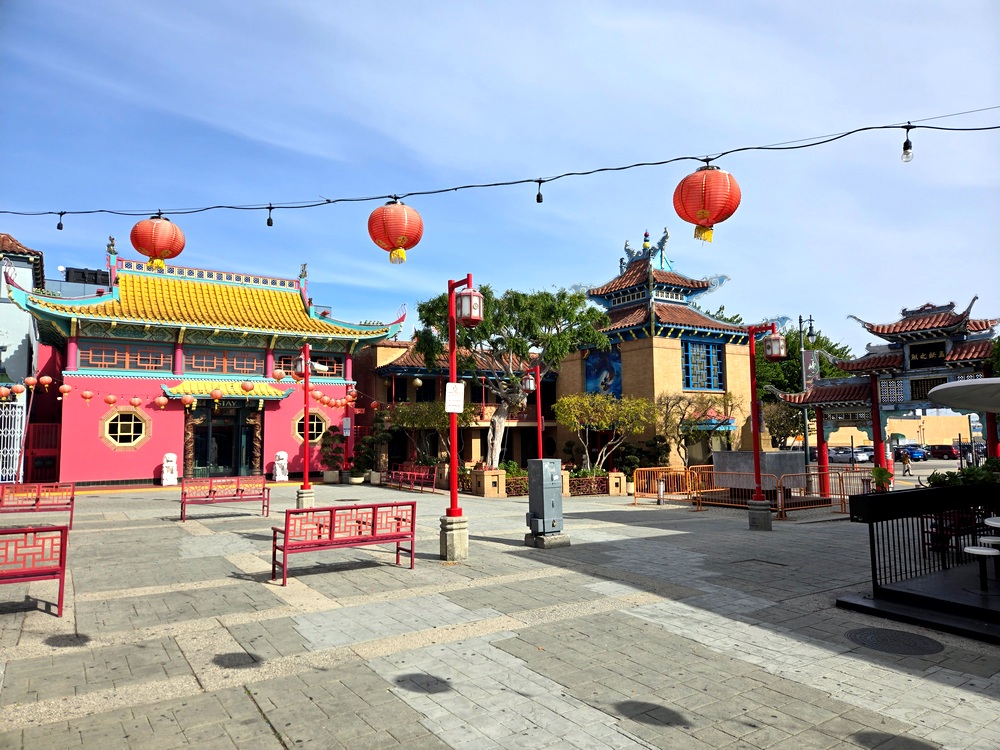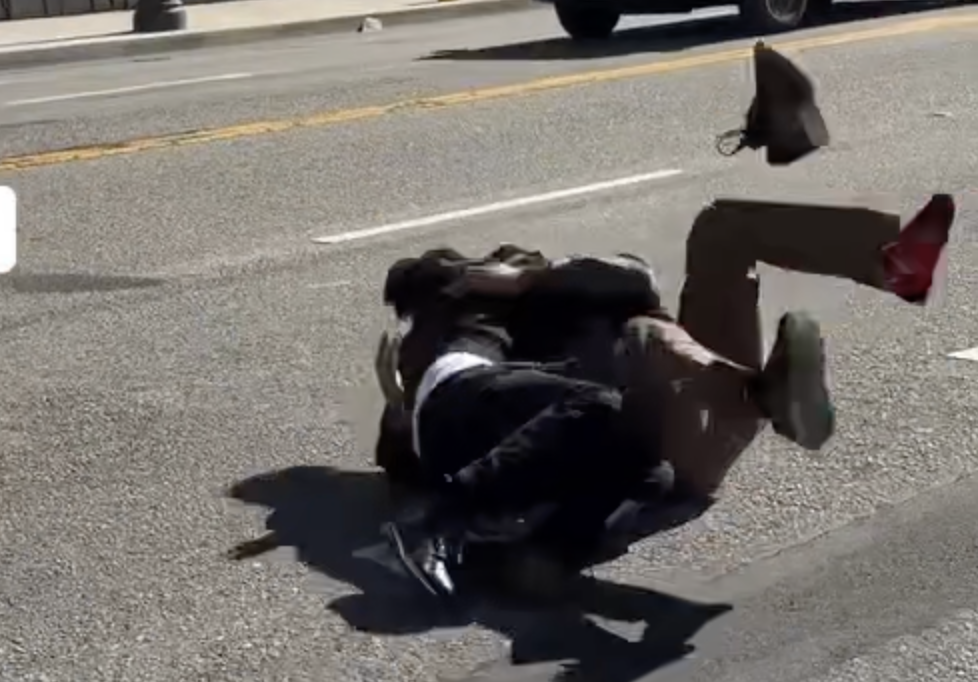Update on 3/23/22: A spokesperson for the Office of the City Controller responded to L.A. TACO's request for comment with the following statement.
Roughly half of all COVID-19 relief funds sent to the City of Los Angeles last year under the American Rescue Plan Act (ARPA) quietly went into the pockets of police officers while members of the public called for resources to be diverted away from law enforcement. City officials say the spending was necessary and fits within the guidelines outlined in the legislation.
The city was awarded roughly $1.3 billion under the ARPA, the trillion-dollar economic stimulus package championed by the Biden administration, providing checks and unemployment benefits to millions of Americans. According to city officials, $680 million was transferred to the city last year, with about $317 million going to the Los Angeles Police Department (LAPD) for “payroll expenditures,” according to city officials.
Outside of public safety, the city has reported spending less than $13 million on grants to support local businesses and boost hiring in underserved areas.
CITY OF LA FINANCIAL TRANSPARENCY 🚨
The City received $639,450,464 from the American Rescue Plan (ARP) in 2021. We did a CPRA of the Controller's office & found out that $317.4M or 50% of our ARP funds were spent on "general government services (LAPD's payroll expenditures)" 🚔
— Kenneth Mejia, CPA (@kennethmejiaLA) March 14, 2022
Kenneth Mejia, a certified public accountant, and activist running for city controller, first reported this last week after receiving the public records request filed earlier this month with the Office of the City Controller (the city’s accountant). The city controller previously released a report outlining how ARPA funds are spent. “ARPA funds support current programs and will fund key investments to alleviate homelessness, create neighborhood equity initiatives, aid the ongoing COVID-19 response, and more,” the report reads.
But Mejia found gaps in the data. “I was searching to see specifics on what we spent our COVID-19 federal relief funds on from the American Rescue Plan. When I couldn't find it online on the controller's website, I decided to do a CPRA to find out,” Mejia told L.A. TACO this week. Despite receiving half of the funds thus far, the LAPD is absent from the city controller’s ARPA report. The police department is not included in the data dashboard that allows users to see how money is distributed to more than 20 city agencies and what it’s being spent on. Nor are they referenced anywhere else in the report.
Similarly, a 32-page report from the Chief Administrative Officer (CAO) detailing how the city plans to spend their relief funds only mentions "LAPD" once and "police" twice. There’s no reference to ARPA funds being used for police salaries. In response to Mejia’s public records request, an analyst with the Office of The City Controller admits that the data was not included in their dashboard but says it will be released in another report later this year.
Benjamin Ceja, an Assistant City Administrative Officer (CAO), told L.A. TACO that they could not confirm any of the city controller’s dashboard data. “To the best of our understanding, the information on the controller’s site relies on numbers from the Mayor’s proposed budget for FY 2021-2022 that were subsequently modified through the adoption of the budget.” Ceja added that the ARPA expenditures listed in the proposed budget “were based on potential eligible uses that we later determined were ineligible or required further review.” Ceja directed us to the city controller for further comment.
A spokesperson for the city controller, an office that prides itself in accountability and transparency, did not respond to multiple requests from L.A. TACO for comment for this story.
In a report submitted to the treasury department last year, the city made it clear that they intend to use ARPA funds “to address the negative economic and health impacts of the pandemic, and to do so in a way that allows the city to act as an engine for equity, targeting and serving disadvantaged and traditionally underserved communities.”
So how did nearly all of the first batch of ARPA relief funds go to the LAPD?
Cities can use ARPA funds to address pandemic-related expenses such as free COVID-19 testing, contact tracing, and rental assistance, but they can also be used for the “provision of government services.”
“To be clear, spending on public safety services and general government services are eligible expenditures and consistent with the intent of the funds,” Ceja, the city financial analyst, told us. By their estimate, the city lost over $1.2 billion in revenue during the first ten months of the pandemic. The loss was so significant the city was forced to dip into reserves and front-fund costs.
“Based on our calculations using the methodology from the U.S. Department of Treasury, the city’s general fund revenue losses due to the negative economic impact of the pandemic will exceed $1.28 billion,” explained Ceja. “Given this huge revenue gap, the city treated [all ARPA funds] as general fund revenue replacement. This allowed the city to balance the general fund budget for two fiscal years (FY21 and FY22) without drawing on reserves or deficit borrowing (using long-term debt to pay for short-term needs).”
In addition to providing funds for unemployment and rental assistance for Americans, the American Rescue Plan Act also set aside hundreds of millions of dollars for local governments to “keep front line public workers on the job and paid.”
Under the legislation, “funding may be used to pay for ‘government services in an amount equal to the revenue loss experienced by the recipient due to the COVID-19 public health emergency.” Those services include “any service traditionally provided by a government, including construction of roads and other infrastructure, provision of public safety and other services, and health and educational services.”
“What this means is that similar to property taxes, sales taxes, and other general fund revenue sources, the ARPA is supporting the everyday government services of the city, including LAPD payroll.” With $1.3 billion in annual payroll expenses (before overtime and personal benefits), the LAPD has the highest payroll in the city. But in a city where thousands of people live on the streets, one might ask: Why not use the money to house people or keep people from falling into homelessness?
Ceja described the spending on public safety as “necessary.”
“We did not have enough of our general fund revenue to cover all of our expenses for the fiscal year 2020-21. As such, the federal funds were used to cover the cost of city government services, specifically LAPD payroll.”
The federal guidelines were unclear when this decision was made, but the city felt that the interim guidelines were clear enough on “public safety services” being an eligible use, Ceja told L.A. TACO. “Thus, to avoid the risk of any expenditures being deemed ineligible, the LAPD payroll expenditures were reported as ARPA funded expenditures.”
So far, the city has only reported spending 12.4 million ARPA dollars on other programs outside of policing. That money is being used to support initiatives in the “Negative Economic Impacts” category, which includes providing technology and rental assistance grants to help businesses impacted by COVID-19. As well as providing funding for small businesses located in disadvantaged communities to set up parklets for outdoor dining under the “Al Fresco” program. In their subsequent report to the treasury department, the city hopes to report additional spending in this category, Ceja told us.
“In addition to general government services, we will be reporting on other expenditures that are more specific in their support for families and businesses struggling with the negative economic impacts of the pandemic. We will provide details of these expenditures in our future reports,” Ceja said in a statement to L.A. TACO. For critics of the police who have been fighting to take resources away from law enforcement, discovering that hundreds of millions of dollars covertly went to the LAPD when so many Angelenos are suffering is a slap in the face. The lack of transparency concerning how the COVID relief funds are being distributed feels intentionally deceptive to some.
“We could've bought buildings to use for permanently housing our unhoused,” a Twitter user wrote under Mejia’s post.
“This kind of information needs to be mass distributed with the hopes of systemic change following close behind,” said another Twitter user.
